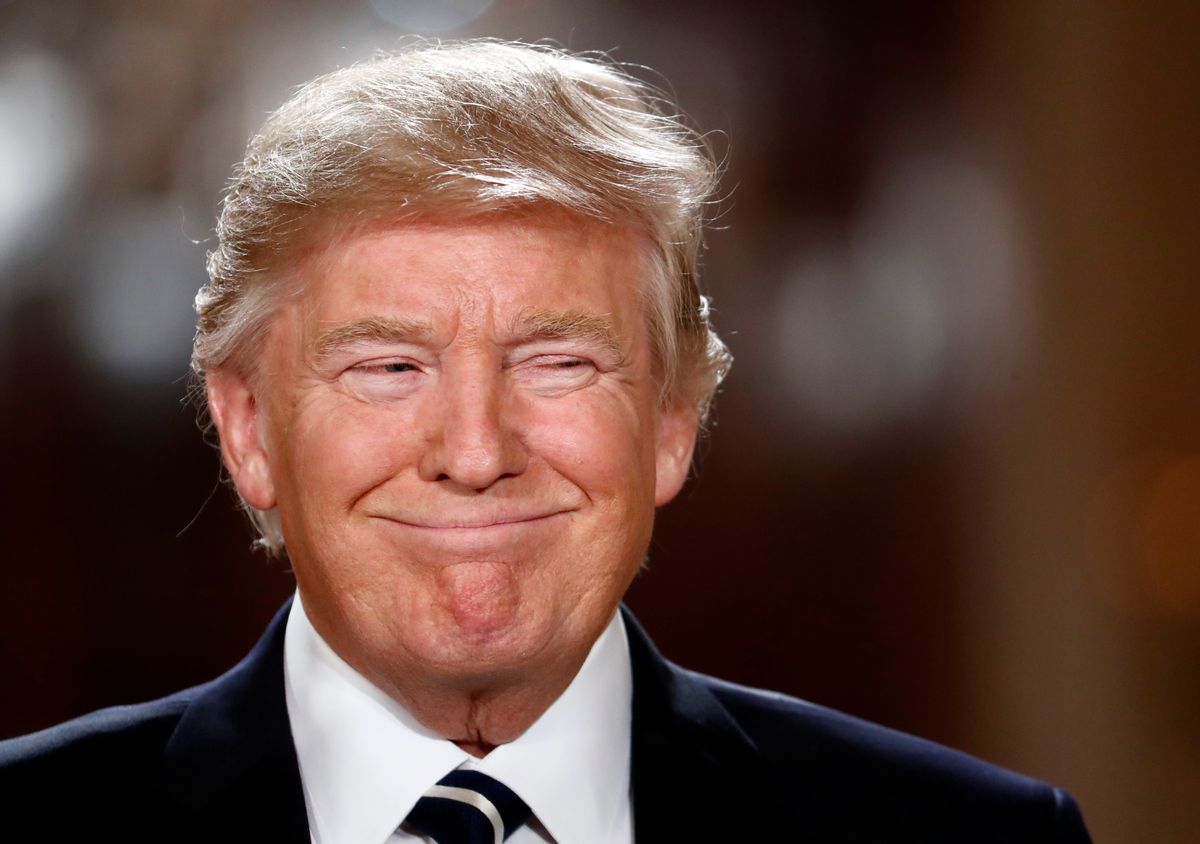Some Republicans have been hesitant to support President Donald Trump's 2020 re-election bid — but they are still helping in other ways.
On Capitol Hill, some GOP lawmakers have been reluctant to throw their weight behind Trump's re-election bid just yet, but let's get real, a scenario in which the Republican Party chooses not to support its incumbent president is almost entirely inconceivable.
CNN caught up with several GOP lawmakers, some of whom were hesitant to express support for Trump's already launched 2020 campaign, and they either offered non-answers, deflections or insistence that the 2018 midterms are their only concern:
The comments highlight the continuing uneasiness many Republicans have over Trump's presidency, and the lingering questions about how the multiple legal battles the president is facing — from the allegations of hush money to silence an alleged affair with the porn actress Stormy Daniels, the raid of his personal attorney Michael Cohen's properties and special counsel Robert Mueller's Russia investigation — will eventually shake out. And they also contradict Trump's oft-stated contention that the party has "never" been more united.
Texas Republican and Senate Majority Whip John Cornyn said, "I don't know what the world is going to look like," when asked if he'd support Trump's re-election campaign. "But let's say it's not something I've given any thought to."
When asked again days later he said, "I'm worried about the midterm election."
Sen. Ron Johnson, R-Wisc., insisted it was "too early to weigh in on who I might support" in 2020.
"That's a little loaded," Rep. Bill Huizenga of Michigan told CNN. "One: we need to make sure that he's actually moving forward and wants to go after this — so when he makes a declaration, then I think that would be a time to determine whether there are others (who) run or not."
But, it's important to note that appealing to a broader electorate has likely been part of the reason some Republicans have held off on throwing their weight behind the president, especially if they are up for reelection come November. Per CNN:
What puts Republicans on Capitol Hill in an awkward spot is the fact that Trump's approval numbers remain rock-solid among core GOP voters, standing at 85% among Republicans in a recent Quinnipiac poll. But if they side too closely with Trump, they risk alienating the broader electorate, where his poll numbers have been historically low.
It's his shaky standing that could prompt a Democratic wave in this fall's elections, with the GOP at serious risk of losing the House and potentially even the Senate. If that were to happen, some believe, Republicans in the Washington will begin to search for a new GOP candidate come 2020.
Regardless of any perceived uneasiness, the idea that Trump and the GOP are not tethered at the hip is a dubious one at best. A primary contender would face a very difficult battle against a president who, when he was still a candidate, steamrolled through and humiliated every establishment GOP candidate in the lead up to the 2016 election.
Even departing Republican senators who have openly lambasted the president for his impolite optics, off-the-cuff rhetoric or impulsivity are likely to support most of his agenda, if not all of it.
Even if the GOP were to distance itself from the president in the months and years to come, for whatever reason, it does not change the fact that conservative lawmakers have both deliberately left special counsel Robert Mueller vulnerable to impulsive executive action, and have actively sought to undermine his investigation. Nevertheless, if the party chose to move in a different direction than Trump come 2020, it's not as if it did anything to prevent a potential constitutional crisis. In fact, GOP lawmakers have allowed that possibility to become a reality in their refusal to protect Mueller and his investigation.
As Greg Sargent of the Washington Post opined:
The complication here is that Congress, of course, is supposed to exercise oversight over law enforcement. But there comes a point at which this oversight, when exercised in obvious bad faith, crosses over into something else — that is, overt and deliberate political interference — and good-faith observers need to be able to say so. As former Justice Department spokesman Matthew Miller put it to me: “The president is working with members of Congress to actively thwart his own Justice Department, because he wants it to stop investigating him.”
By the way: Does anyone think this would be happening if House Speaker Paul D. Ryan didn’t give this effort his tacit blessing? And is there any point at which Ryan, who is now the subject of much discussion summing up how his career will be remembered, will step in and put a stop to it?
The Republican Party has played a little game in which politicians have tried to have their cake and eat it too, by both assisting the Trump agenda and by attempting to act as if they are above his vengeful style of politics. The prime example of this is the "Never Trump" movement, of which figures such as Utah Senate hopeful Mitt Romney could once be considered leaders. But it didn't take long for him to publicly brag that he is even more of an immigration hawk than Trump is.



Shares